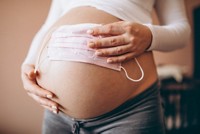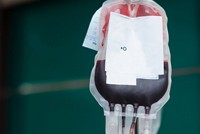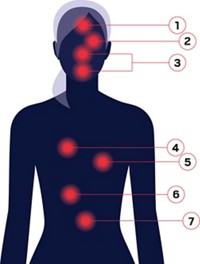Advertisement
Grab your lab coat. Let's get started
Welcome!
Welcome!
Create an account below to get 6 C&EN articles per month, receive newsletters and more - all free.
It seems this is your first time logging in online. Please enter the following information to continue.
As an ACS member you automatically get access to this site. All we need is few more details to create your reading experience.
Not you? Sign in with a different account.
Not you? Sign in with a different account.
ERROR 1
ERROR 1
ERROR 2
ERROR 2
ERROR 2
ERROR 2
ERROR 2
Password and Confirm password must match.
If you have an ACS member number, please enter it here so we can link this account to your membership. (optional)
ERROR 2
ACS values your privacy. By submitting your information, you are gaining access to C&EN and subscribing to our weekly newsletter. We use the information you provide to make your reading experience better, and we will never sell your data to third party members.
Support nonprofit science journalism
C&EN has made this story and all of its coverage of the coronavirus epidemic freely available during the outbreak to keep the public informed. To support us:
Donate Join Subscribe
Infectious disease
Covid-19
Genetic study suggests that people’s blood type may affect their COVID-19 risk
People with type A blood may have higher risk of severe illness, while those with type O may have lower risk
by Alla Katsnelson, special to C&EN
June 11, 2020
| A version of this story appeared in
Volume 98, Issue 23
Last week, a genetic study of more than 1,610 COVID-19 patients in Italy and Spain found that people with type A blood had a higher chance of developing severe respiratory failure than people with type O blood (medRxiv 2020, DOI: 10.1101/2020.05.31.20114991). The findings add support to an idea that has been developing since early in the global pandemic, that type O blood is somehow protective against the disease, while type A may make people more vulnerable.
UPDATE
Aug. 24, 2020
More recent studies suggest there is no significant link between blood type and COVID-19 risk. Read more in our article on those studies.
In the new study, researchers sequenced the genomes of COVID-19 patients in Spain and Italy who had been hospitalized with severe respiratory failure and compared variations in their DNA sequences to those of 2,205 healthy subjects. They found two regions of DNA in which sequence variations were significantly tied to how severely ill the people got. One of those regions contains the gene coding for a person’s ABO blood type. The findings were published on the preprint server medRxiv and have not yet been peer-reviewed.
On June 8, the personal genomics company 23andMe released preliminary results from a study of 750,000 people that came to similar conclusions. The company found that people with blood type O were 9-18% less likely to get COVID-19 than people with other blood types. The results from both of these recent studies align with those from a handful of other reports published earlier this year, including two preprints from a Wuhan (medRxiv 2020, DOI: 10.1101/2020.03.11.20031096) and a New York hospital (medRxiv 2020, DOI: 10.1101/2020.04.08.20058073), and a peer-reviewed study from Wuhan (Br. J. Hematol. 2020, DOI: 10.1111/bjh.16797).
It’s hard to say much about the 23andMe results because the company did not publish its data, says Fumiichiro Yamamoto, an immunohematologist at the Josep Carreras Leukaemia Research Institute in Barcelona, who identified the gene that encodes the blood type antigens in the 1990s. But, he says, the evidence of a link between risk of severe COVID-19 disease and blood type is now solid. The recent medRxiv study “is much more conclusive,” than previous work because the researchers searched through 8.5 million gene regions in an unbiased manner to come up with the association, Yamamoto says.
It’s not yet known how exactly blood type might play a role in SARS-CoV-2 infection. Andre Franke, a molecular geneticist at Kiel University and the co-lead author of the medRxiv study, told the New York Times on June 3 that he could only speculate on this question. He also noted that the gene region that codes for blood type is also associated with elevated levels of a key immune molecule, so theoretically, that too could contribute to the COVID-19 link. However, researchers who study blood type have some concrete ideas, based in part on research conducted during the 2002-3 severe acute respiratory syndrome (SARS) epidemic, caused by SARS-CoV-1, a viral cousin of the COVID-19 coronavirus.
Blood type is determined by specific sugar molecules that are added to proteins or lipids on our blood cells and other cell types. People with type A blood carry so-called A sugar antigens, those in people with type B blood have B antigens, and people with type O blood have neither. Correspondingly, the immune systems of people with type A blood develop antibodies for B antigens, people with type B blood have antibodies for A antigens, and people with type O blood have antibodies for both.
The spike protein of SARS-CoV-2, which is a key molecule the virus uses to infect cells, is also heavily glycosylated, says Laura Cooling, director of immunohematology at the University of Michigan. “The spike protein has got tons of sugars on it, and the virus is borrowing the host enzymes to put those sugars together,” she says. Research on SARS-CoV-1 suggested that the spike protein of virus particles often carry the blood group sugar antigen of the infected host cell that produces the pathogen.
SARS-CoV-2 can replicate in cells that express blood type antigens, says Jacques Le Pendu, a glycobiologist at the University of Nantes. So when an infected person coughs or sneezes, they possibly release viral particles coated in their blood type antigens. That means if a person with type A blood transmits the virus to a person with type O blood, the type O person will have antibodies that can fight the virus. However, if the person inhaling the particles is also type A, they won’t have those antibodies.
Data from the SARS epidemic also seems to support the type O protection idea. A 2005 report analyzed the fallout from one infected patient exposing 45 healthcare workers in a Hong Kong hospital to the SARS-CoV-1 virus. Of the 19 people with type O blood, 8 became infected, but of the 26 people with other blood types, 23 became infected (J. Am. Med. Assoc. 2005, 10.1001/jama.293.12.1450-c). In subsequent lab studies, Le Pendu found that antibodies against type A antigens block the interaction between SARS-CoV-1’s spike protein and the host cell receptor it uses to get into cells, but only if the virus particles had been made in cells that could express the A antigen.
But Cooling notes that the idea that having type O blood is protective doesn’t match up with the COVID-19’s epidemiology in the US. Type O blood is more prevalent among African Americans, yet African Americans have experienced disproportionately high infection rates. That epidemiological data suggests that the blood type protective effect might be quite small, compared with other factors, she says. “It’s what your blood type is, relative to the other person who exposed you, relative to all the other genetic and acquired health conditions you have,” she says.
Although the medRxiv study did not find an association with blood type B, both Yamamoto and Le Pendu suspect that a study including more type B people might find that the blood type shows the same increased risk as type A.
The presence or absence of blood type antibodies is not the only way that blood type might affects the body’s response to infection with SARS-CoV-2. Blood type influences blood clotting and a growing body of evidence suggests that COVID-19 pathology often involves overactive blood clotting. People with type O blood have lower levels of proteins that promote blood clotting. “This also strengthens the argument that group O individuals are least likely to be severely damaged by this disease,” Yamamoto says.
CORRECTION
This story was updated on Sept. 2, 2021, to remove the lead image and its caption. The caption restated the conclusion of these studies, but more recent research suggests that the conclusion was wrong and that there is no significant link between blood type and COVID-19 risk.





Join the conversation
Contact the reporter
Submit a Letter to the Editor for publication
Engage with us on Twitter